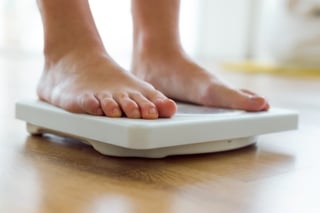 Every month, Chase Medical Research hosts a diabetes information session presented by Janet Schaefer. Here is an excerpt from one of our recent sessions, discussing how weight loss and diabetes are related:
Every month, Chase Medical Research hosts a diabetes information session presented by Janet Schaefer. Here is an excerpt from one of our recent sessions, discussing how weight loss and diabetes are related:
About a Diabetes Educator
My Name is Janet Schaefer, I’m a diabetes educator. We are going to talk about diabetes: what is diabetes, why you might have gotten it, what your blood sugar goals should be, and how to achieve those goals.
I am an expert in diabetes, I have over 2,000 hours educating people about diabetes and I am a licensed Dietician as well. I am not a diabetic personally. I went into the field because regular dietetics doesn’t interest me. I’m far more interested in disease care and prevention. I wanted to specialize in something and diabetes is so epidemic right now I felt that it was important work for me to do.
The Misconception of a Typical Diabetic
Everyone thinks diabetes is a disease of poor diet or excess weight, and though those are some factors, the biggest factor in determining whether or not you have diabetes is family; you could be carrying no excess weight and still suffer from diabetes. Many people with diabetes don’t look like the “Typical Type 2 Diabetic” because it's more genetic than anything else.
"That's like me, I noticed I was losing weight, everyone was commenting on how great I looked and how skinny I looked. But I wasn’t making any changes to my diet or exercise! I loved to eat! but I was getting really tired around 3 in the afternoon.
Finally I thought, you know I’m going to check my blood sugar sugar tomorrow morning. And you know what, it was over 250. I thought “Oh my gosh, I need to make a doctor's appointment.”
That's interesting. Your blood sugar was running high and that's why you were losing weight. Its interesting with diabetes; in the early stages your weight goes up, and your blood sugar gets to a certain point and then you start to lose weight. We’ll talk about that and start to understand that.
Here's The Good News
 But the good news is, they put you on insulin, which will help to stabilize your weight as well. Insulin is best for diabetics with high AIC-- it's the safest and most effective treatment for diabetics. The major risk is that you might go low. It doesn’t get metabolized by your kidney or liver or have neurological side effects. A lot of people tend to think of it negatively or as a last resort, but if you can’t get your diabetes under control through diet and exercise alone or with oral medication, insulin is the safest way to get your blood sugar to manageable levels. There's nothing wrong with being on insulin. It's the most effective way to lower blood sugar, no doubt about it.
But the good news is, they put you on insulin, which will help to stabilize your weight as well. Insulin is best for diabetics with high AIC-- it's the safest and most effective treatment for diabetics. The major risk is that you might go low. It doesn’t get metabolized by your kidney or liver or have neurological side effects. A lot of people tend to think of it negatively or as a last resort, but if you can’t get your diabetes under control through diet and exercise alone or with oral medication, insulin is the safest way to get your blood sugar to manageable levels. There's nothing wrong with being on insulin. It's the most effective way to lower blood sugar, no doubt about it.
That brings us to a good point about diet and exercise, and how we can be eating what we should eat for diabetes. I have to say, even though I’m a dietician, I do not believe in just portion control as a means of managing diabetes and or weight loss. There's more to it than just portion control, or calorie control. I don’t believe that calorie control is the way to manage diabetes or even weight loss. What you eat is much more important than how much you eat.
Stay tuned for next week's post covering Janet's diabetes informational sessions, "Why Do I have Diabetes?" Register for our next diabetes information session for more great insights on living with and managing diabetes.
New Diabetes Trials
Chase Medical Research is currently enrolling in multiple different clinical trials related to diabetes. Learn more about these trials and to see if you would qualify today.
Share This Post
Recent Posts
- The Relationship Between Obesity and Obstructive Sleep Apnea February 11 2016
- Cardiovascular Outcome Clinical Trials February 11 2016
- Diabetic Peripheral Neuropathic Pain February 11 2016
- Are All Types of Cholesterol Bad? February 11 2016
- Blood Pressure: The Highs, the Lows, and Everything in Between February 11 2016
Categories
- Clinical Trials
- Cardiovascular Disease
- Diabetes
- Obesity
- Kidney Disease
- Hypertension
- Pain Management
- Vaccine
- Cholesterol
- Chronic Obstructive Pulmonary Disease
- Diabetic Peripheral Neuropathy
- Migraine
- Osteoarthritis
- Biologics
- COVID-19
- Gastroesophageal Reflux Disease
- Irritable Bowel Syndrome with Constipation
- Lyme Disease
- Nonalcoholic Steatohepatitis
- Respiratory Syncytial Virus


